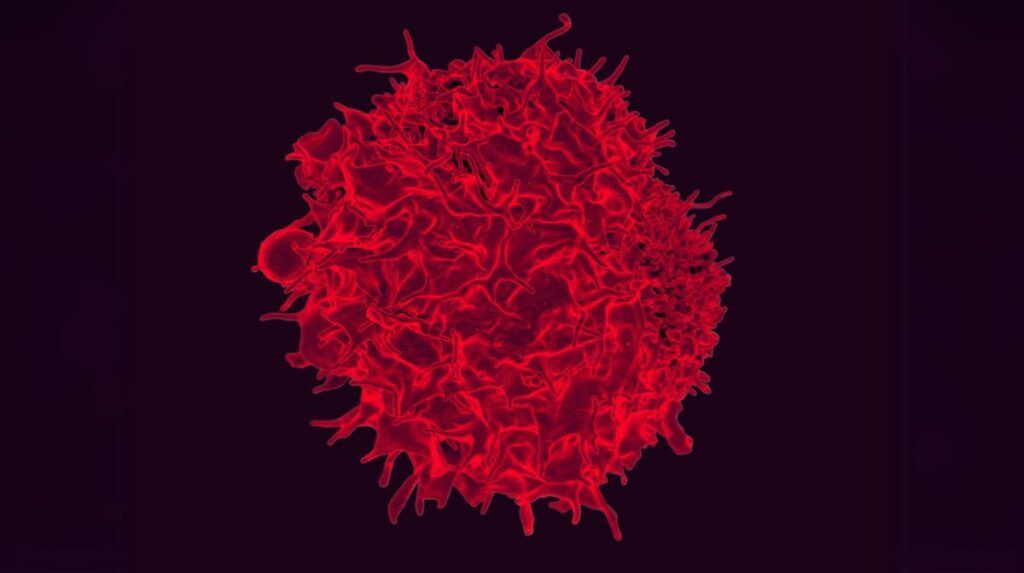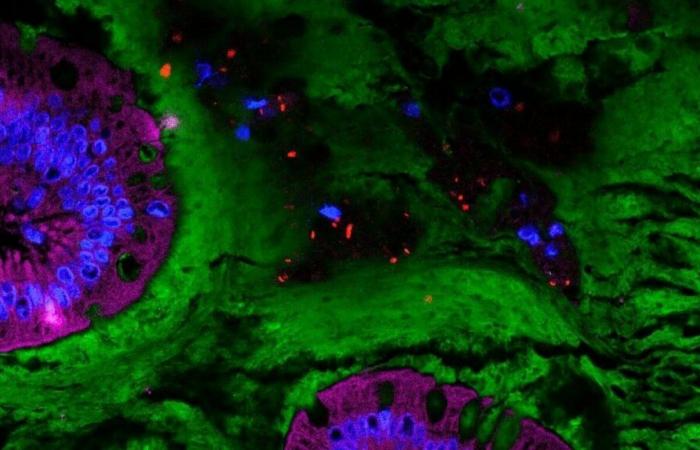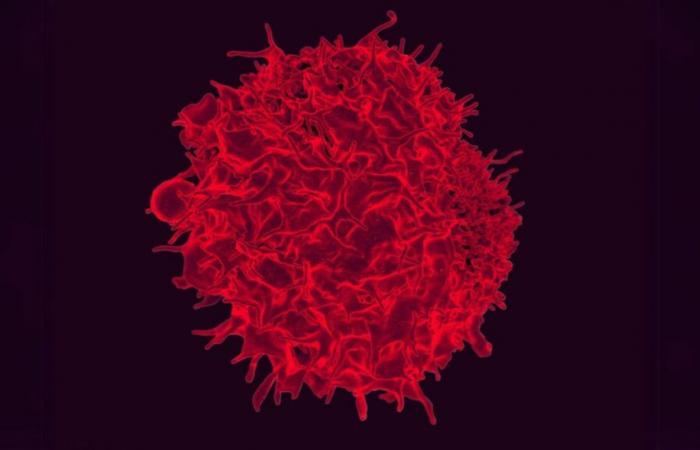There are immune cells in the body involved in the control of autoimmune and inflammatory diseases: they are called Tregs. At the Marseille-Luminy Immunology Center, Magali Irla’s team discovered a natural brake on their production. It therefore constitutes a new therapeutic target to be tested to fight against these diseases.
At territorial borders, there are checkpoints where travelers are authorized to pass or are, on the contrary, sometimes turned back. It is the same in the immune system: “ checkpoints » are in place to determine whether an immune cell should engage in a process or not. As they were discovered, many of them became therapeutic targets, particularly in oncology. At the Marseille-Luminy Immunology Center, the researcher’s team Inserm Magali Irla has just described a new one: the first involved in inhibiting the development of a particular population of lymphocytes, Tregs. This is a major advance because these cells play a key role in the control of immune responses and autoimmune diseases: multiple sclerosis, inflammatory bowel diseases (IBD), arthritis, and even diabetes. type 1… This family of diseases affects 5 to 10% of the population.
Regulator of the immune system
Tregs are major players in immune tolerance. To fully understand their function, we need to go back to basics. Our immune system has the ability to discriminate self from non-self, an essential distinction to prevent attack on our own tissues. This process is based on the spontaneous elimination, at the time of their formation in the thymus, of so-called autoreactive immune cells, which identify certain cells of the body as foreign. However, some of the autoreactive cells manage to escape: they then pass into the blood circulation and can cause damage to various tissues. This is where Treg cells come into play. Also produced in the thymus, they will flush out escapees and control their action to maintain immune tolerance. These cells help to attenuate immune responses in the event of an outbreak, and thus play a protective role against autoimmune and inflammatory diseases. Moreover, ongoing clinical trials consist of administering Treg cells to patients to control some of these diseases.
A new therapeutic target
It was by working on these cells that Magali Irla’s team discovered a mechanism that slows down their production in the thymus. The researchers were interested in a membrane protein called lymphotoxin, overexpressed in precursor cells destined to become functional Tregs. They found that it had the ability to inhibit the formation of new Tregs and described the molecular mechanisms associated with this activity. The Marseille team then showed, in mice, that deleting this protein leads to very abundant production of Treg in the thymus.
Thanks to this discovery, a new therapeutic approach to fight against certain autoimmune diseases is emerging: targeting the checkpoint which constitutes the production of lymphotoxin to increase the production of Tregs in the thymus. “ This regulatory mechanism concerns only one type of Treg precursors out of the two existing ones.explains Magali Irla. The cells in question produce Tregs more involved in the control of intestinal inflammation. We have human data that confirm these results. » The team will therefore test this avenue in the hope of developing more targeted treatments against certain autoimmune or inflammatory diseases. Their first tests will consist of inhibiting lymphotoxin in mouse models that present colitis, that is to say severe inflammation of the colon.
Magali Irla, Inserm researcher, leads the Immune Tolerance and T Cell Differentiation team at the Marseille-Luminy Immunology Center (CIML, unit 1104 Inserm/CNRS/Aix-Marseille University).
Source : A. Borelli et al. Lymphotoxin limits Foxp3+ regulatory T cell development from Foxp3lo precursors via IL‑4 signaling. Nat Commun 15, 6976 (2024) ; DOI : 10.1038/s41467-024–51164‑5
Author: A.R.
Also read
Autoimmune diseases
Autoimmune diseases result from a dysfunction of the immune system which leads the latter to…








